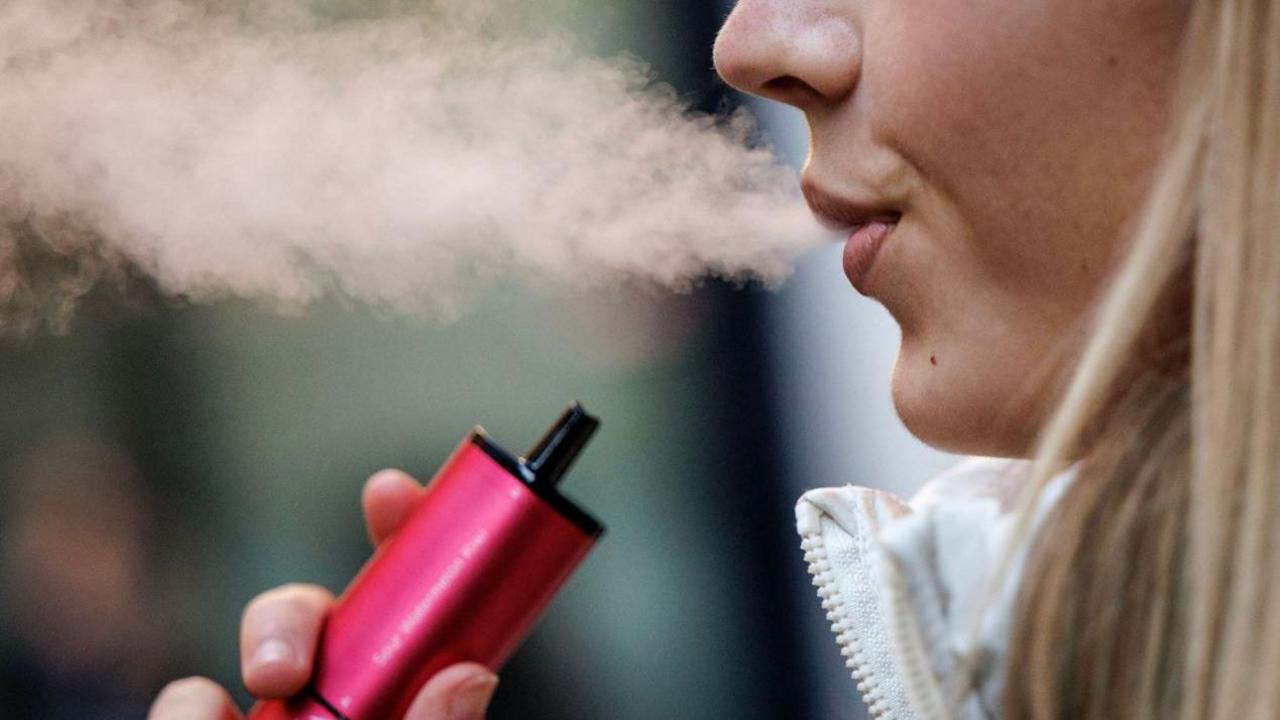Disposable vapes ban: a lot of hot air or a slow-burn success?
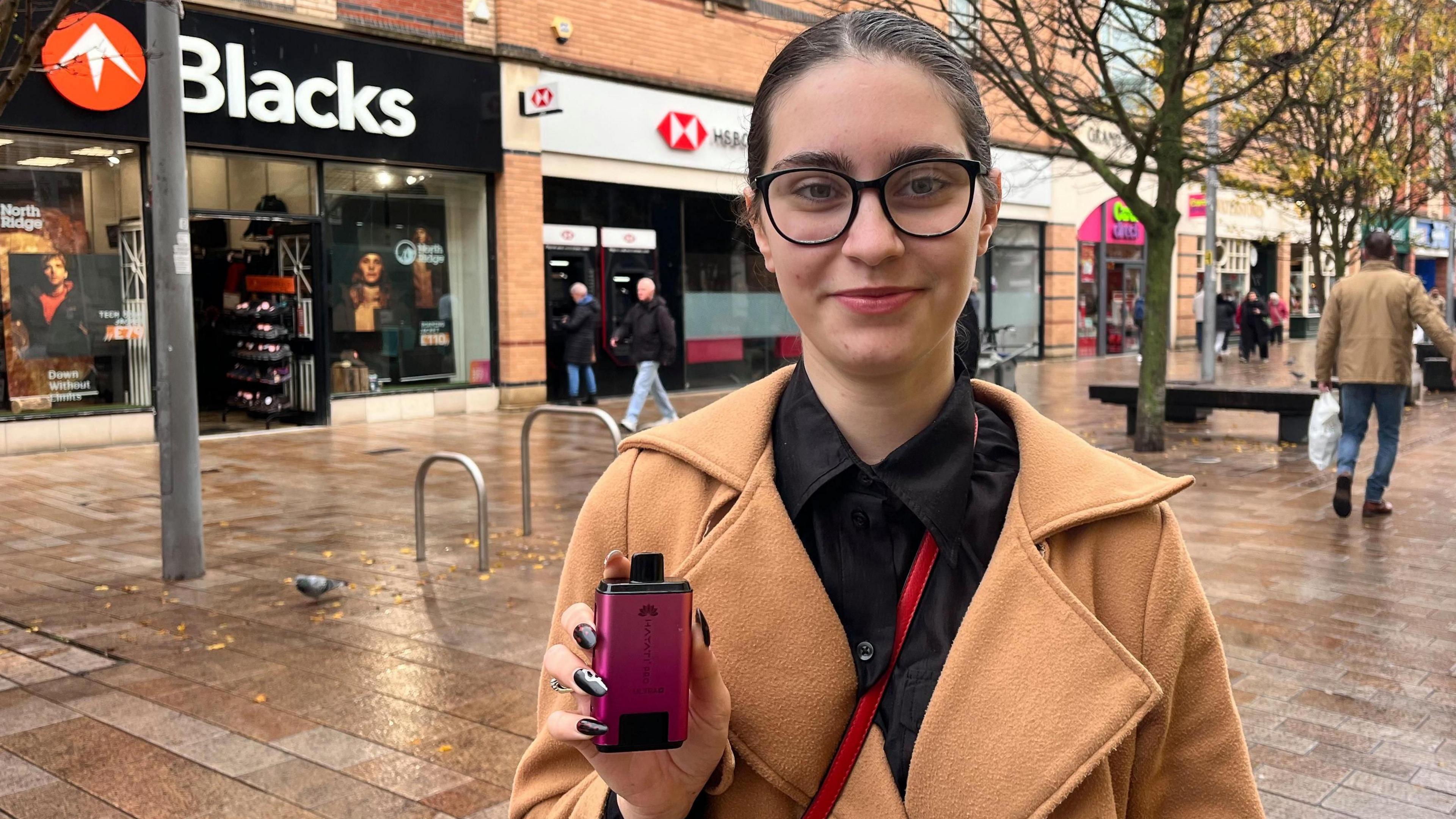
Chloe Jennison, from Hull, started vaping at the age of 18
- Published
The sale and supply of single-use e-cigarettes has been illegal since June, with the government hoping it would reduce environmental damage and cut rates of nicotine addiction. We spoke to young people in Hull, who started vaping as teenagers, to find out whether the disposable vapes ban is changing their habits.
Chloe Jennison, 20, said she had "not noticed a difference" in how young people were using vapes.
"I'd say younger ones are doing it more," she said. "I think it's more about accessibility, like where are they getting them from?"
Ms Jennison took up vaping aged 18 to help her quit smoking.
She said young people were often attracted to the habit because vaping was "more convenient" than smoking and could be done in more places.
"I even sit in bed vaping," she added. "I think they need to put warning signs like what they do on cigarette packets with the lungs.
"You don't really know what vaping is doing to your insides."
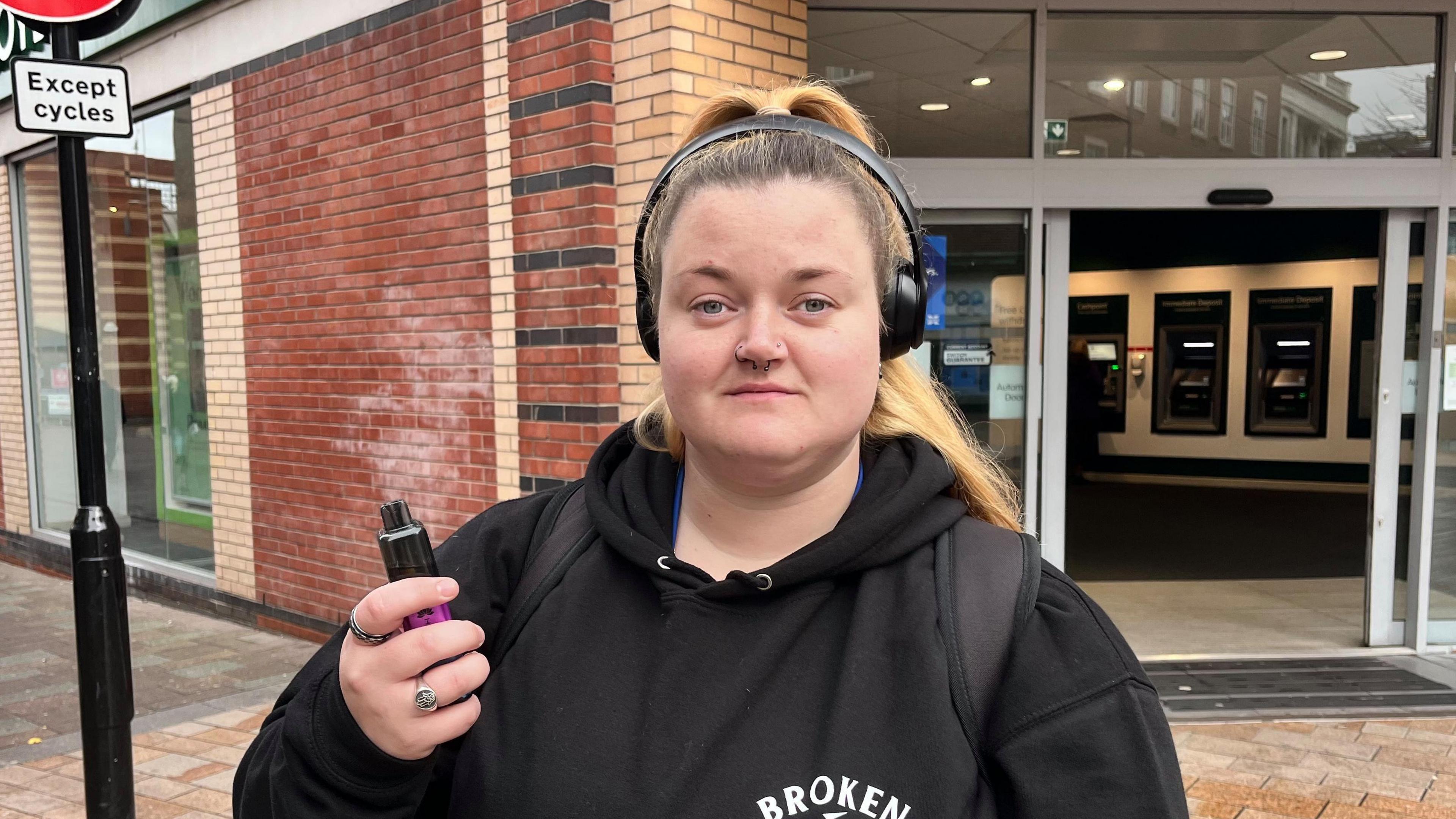
Shelby Brown has been vaping on and off for the past eight years
A survey by the Office for National Statistics (ONS), published this month, suggested about 5.4 million adults used vapes daily or occasionally.
The use of e-cigarettes daily or occasionally was highest among 16-24 year olds at 13% of people in 2024, down from 15.8% in 2023, according to the survey.
The ban on disposable vapes is one of a number of measures the government is taking to discourage young people from using them.
The Tobacco and Vapes Bill, external, which is progressing through Parliament, is set to ban the advertising and sponsorship of vaping. It will also provide powers for regulating flavours, packaging and how and where vapes are displayed in shops.
Shelby Brown, 26, said not much had changed since the ban came in, but thought tougher regulations on flavours and packaging would make a difference.
"Mine is purple and blue and the colours and flavours draw you in," she said.
"If they could reduce what flavours there are and how easy they are for people to get hold of, then it probably would tackle it."
'Everyone's doing it'
But 18-year-old Chantelle Adamson, who began vaping aged 14, said children would always find a way to take up the habit.
"Young people want that attention and they're thinking vaping is good," she said.
"Everyone is doing it now, it is like a trend.
"There's no point telling them to stop when they're going to carry it on anyway."
Almost five million single-use vapes were thrown away each week in 2023, according to the Department for Environment, Food and Rural Affairs (Defra).
It was hoped the ban would drive down the figure, but in September the waste management firm Biffa said the devices were still causing chaos with a 3% rise in the numbers incorrectly mixed in with general recycling at its centres in the three months since the ban.
Biffa said 840,000 vapes were found at its sites between 1 June and 30 September, an average of more than 7,000 a day.
However, on the ground in Scunthorpe, North Lincolnshire, there are signs that the tide may be turning.
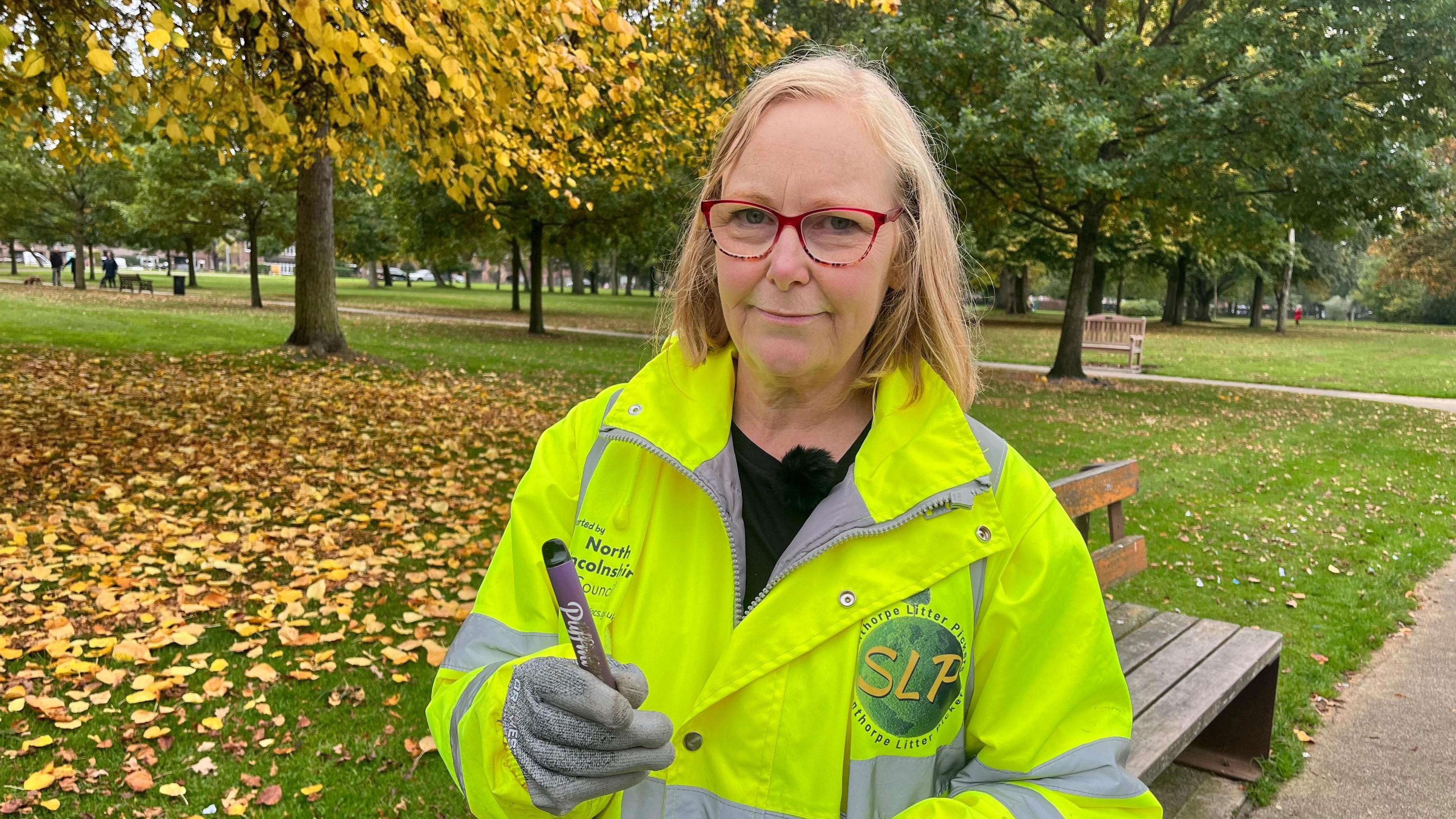
Litter-picker Jayne Eaton says the ban has been "positive" for the environment
Jayne Eaton, from Scunthorpe Litter Pickers, said the group had seen "a big reduction" in the number of discarded vapes.
In February 2023, they picked up 63, but are now finding only a handful.
"They were on pavements, in gutters, they could be broken because a car had run over them," Ms Eaton said.
"Now it is rare you find them. It's one or two occasionally, so it is a lot better.
"When they first came out, I couldn't believe something so big and bad for the environment was just being thrown on the ground," she added.
Industry body the Independent British Vape Trade Association also claims to have seen a change in habits, but warned the ban was being undermined by criminal networks.
Chief executive Gillian Golden said: "Our members' sales data points to consumers recharging and refilling devices rather than just throwing them away after one use.
"So on environmental grounds, we consider the ban a success.
"While reputable businesses immediately complied with the new rules, the same cannot be said for the illicit trade.
"Much of this illegal trade is conducted by criminal networks who see illicit tobacco and vapes as any other cash market commodity. They do not care about the legitimacy of what they sell, or to whom it is legally sold."
'Decisive action'
The government said it was strengthening enforcement against illicit vapes as part of a range of measures.
A spokesperson for the Department of Health and Social Care added: "While vapes can help adult smokers quit, non-smokers and children should never vape.
"That's why we've banned single use vapes and are taking decisive action through the landmark Tobacco and Vapes Bill, which will clamp down on youth vaping by restricting the packaging, flavours and display of vapes and nicotine products."
The charity Action on Smoking and Health, which campaigns to reduce vaping among young people, said it was "early" to be able to tell whether the ban was having an impact.
Caroline Cerny, the deputy chief executive, accepted there was a "valid concern" that some reusable vapes on the market did not look much different to disposable versions.
"They may legally pass the definition by having a recharge port and a refillable aspect, but because they look the same and they may be available at a very similar price, it's not really incentivising people to switch in the long term," she said.
But she believed the ban would have a positive effect alongside other measures in the government's Bill, including new rules to restrict marketing and advertising.
"If we're really going to tackle youth vaping we need many more measures to make them far less appealing to children," she added.
Listen to highlights from Hull and East Yorkshire on BBC Sounds, watch the latest episode of Look North or tell us about a story you think we should be covering here, external.
Download the BBC News app from the App Store, external for iPhone and iPad or Google Play, external for Android devices
- Published9 September
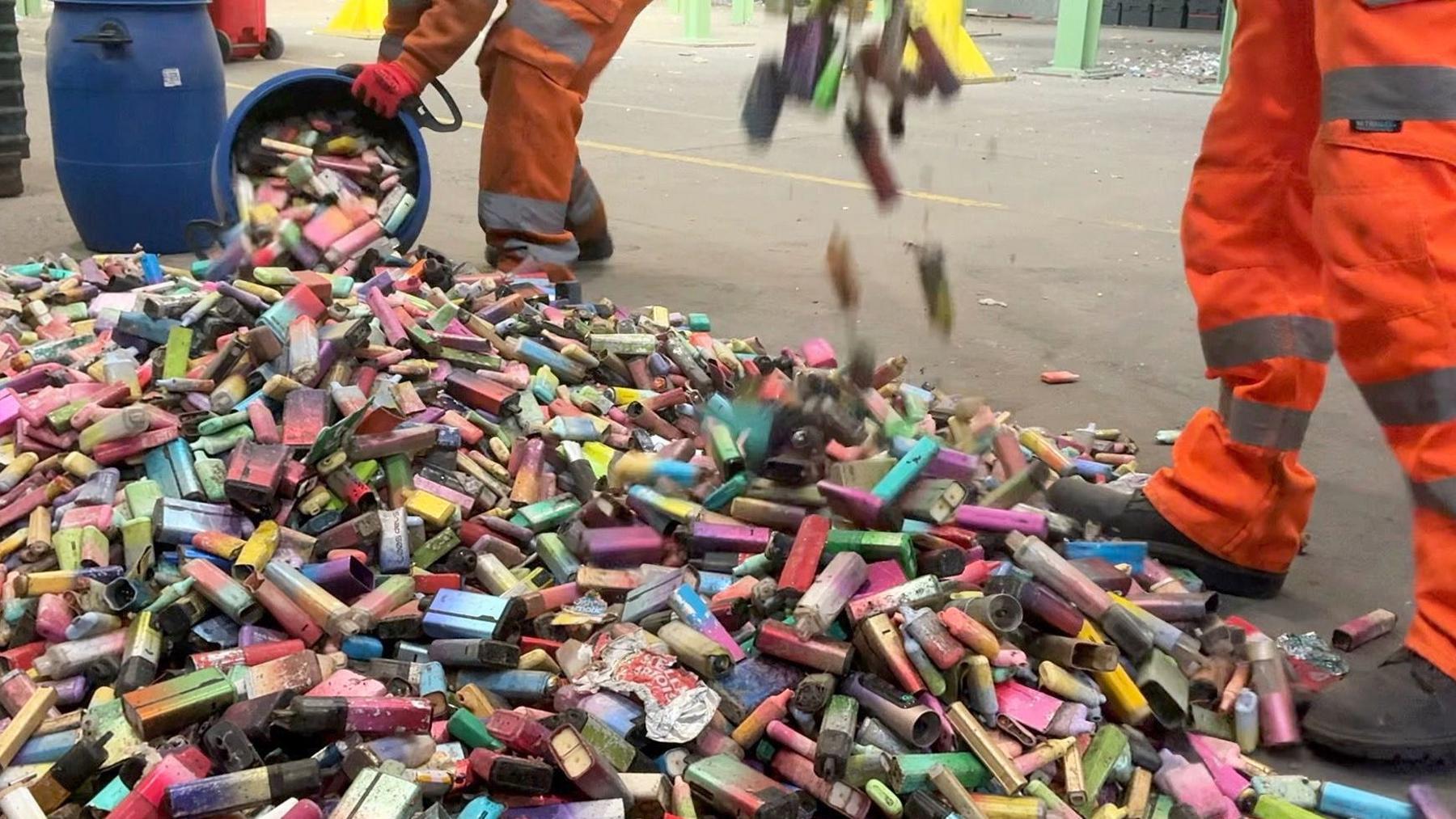
- Published1 June
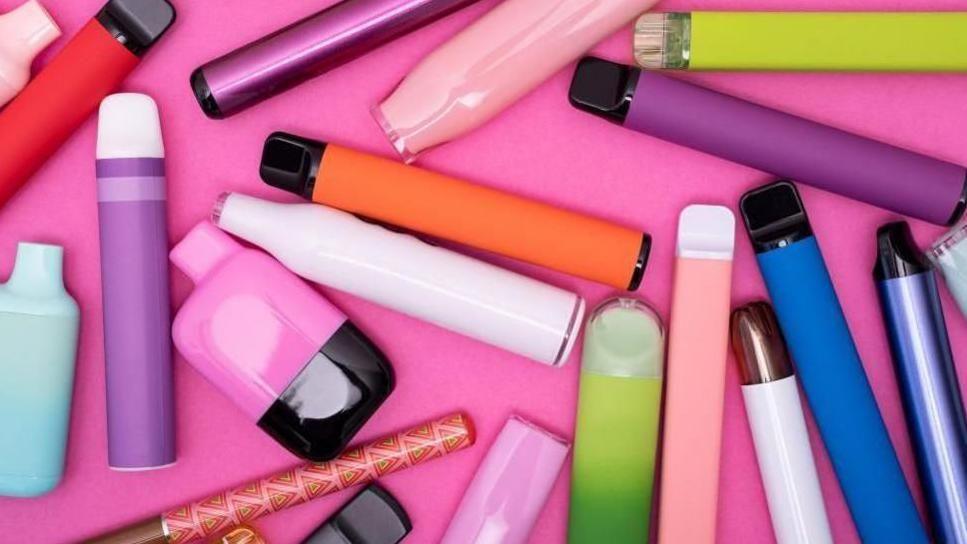
- Published6 August
